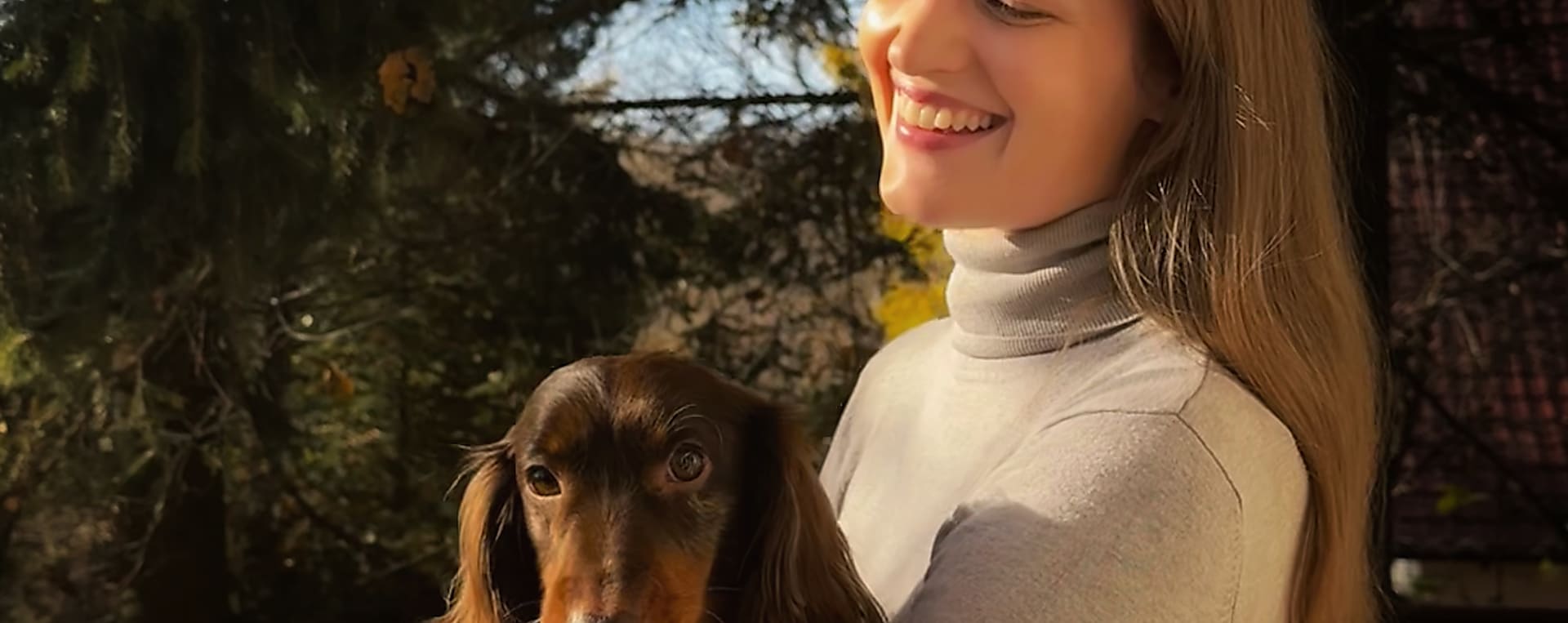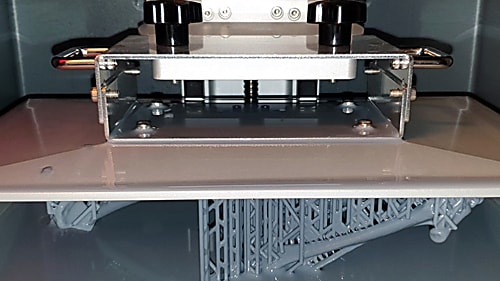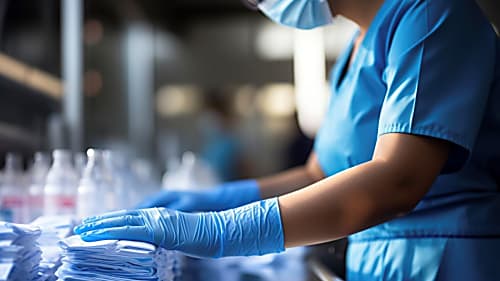Why did you decide to adopt a dog during the COVID lockdowns?
Having a puppy has been my dream since I was a child. But then, as an adult, I had never found the right moment to adopt one, mainly due to my job, because I wouldn’t have had enough time for a dog, so it wouldn’t have been a fair decision. However, as soon as life changed thanks to home office, a new world opened up for me where I felt that the time finally came to adopt a dog. I thought and felt that whatever would happen in regards of the future, it will be a good decision!
How did your mood and lifestyle change when your dog became part of your life?
It was one of my most beautiful experiences emotionally - animals open your heart in a very special way... this kind of pure love is unique. It’s a big responsibility to take care of a living creature but they give you so much and teach you a lot of things. In a sense, taking on this responsibility might inspire you to really grow up, which also means that you can learn a lot about yourself in this process.
Of course, my lifestyle has also changed because if you have a dog, you inevitably move your body more and that does you good. Besides, your activities change a bit too. It’s not always easy, however, if you are used to being completely free. You have to bear in mind that that kind of freedom is over - but it doesn’t mean that you have to give up your freedom, you just have to plan and arrange things differently (I mean, for example, if you like traveling, you have to think about a few things in advance as to who can help you and look after your pet. Or you have to consider the size of your dog and check if he can travel with you.)!
What daily routines did you and your dog develop which helped you get over the difficult periods?
I think one of my main new routines, which has been good for me in general, is that you have to leave your home daily with a dog. Especially try and be in nature whenever it’s possible. To put it differently, dogs make you exercise every day but - of course, you don’t always feel like going for a walk or leaving your home, especially if you are not in a good mood or you have the blues. But so far, I have never once regretted going out into the fresh air and getting some exercise in - nowadays it is publicly known that it does you extremely good, not only physically but mentally too. And you can never know what experience you will have! You might meet a kind neighbour or a friend on your way and it can help you a lot mentally in that moment. Of course, it was also very good that I was never alone thanks to him, dogs can really become your best friend. To this day, we work together every day! :)

How did your social relationships change after the arrival of your dog? Did it help you contact others?
I have certainly made many new acquaintances and even friends thanks to this! If you and your dog are open and friendly, you can gain a lot of new relationships thanks to being a dog owner, even in the course of your regular walks!
How do you think your dog helped you stay mentally strong in the period of confinement and isolation?
Dogs give you a good reason to get up every day, they take you out of your home and with their natural happiness and endless love, they give you so much positivity every day - and I know for sure that they always make you smile, even on difficult days! And, as I’ve already mentioned, they get you moving. It’s also a well-known fact that physical movement helps a lot to preserve your mental health!
What would you advise to those who are considering adopting a pet, especially from the perspective of mental health?
Earlier I would have said that it might not be the best idea... simply because of the gravity of the responsibility and you often have to prioritise your pet. My opinion has somewhat changed because I believe that animals are wonderful and their love and company can truly have healing powers. However, adoption always depends on the individual situation because you have to have the appropriate (mental, physical and financial) capacity, even on bad days, so that your pets needs are never neglected!
After the COVID lockdowns are over, how does your dog continue to affect your everyday mental well-being?
I’m grateful to him that my days are more active and in a way, it was also him who inspired me to be brave and to fulfill a big dream of my life, after the normal rhythm of life was restored. To tell the truth, I had always dreamt of running my own business and I also felt comfortable working from home - so, a big part of my motivation to become self-employed was to be able to live my life in my own rhythm and also to still have enough time for my dog. That is how I dared to take the step to start my own business!









